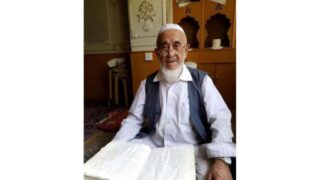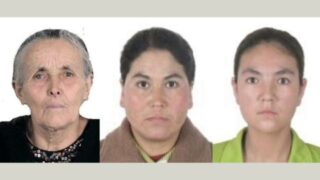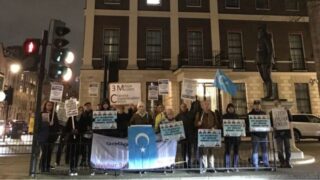Former president of Xinjiang University Tashpolat Tiyip faces execution, as Chinese authorities intensify the “study, purge, resist” crusade against dissent.
by Xiang Yi
On September 9, Amnesty International launched a call for urgent action, encouraging people to send letters to President Xi Jinping to demand the immediate and unconditional release of Tashpolat Tiyip, a well-known Uyghur scholar who was sentenced to a suspended death sentence for “separatism” during a secret trial two years ago.


In 2017, Tashpolat Tiyip and a group of students were on the way to Germany to attend a conference when he was arrested at Beijing International Airport. He has been disappeared ever since, and his whereabouts remain unknown.
Born in 1958, Tashpolat Tiyip studied at the Tokyo University of Science, where he received a Doctorate of Engineering in Applied Geography in 1992. He became president of Xinjiang University in 2010.
“Xinjiang University faculty have been a focus for the Chinese authorities, given their prominence in Uyghur-produced scholarship conducted in the region,” states a January 2019 report by Uyghur Human Rights Project. “Twenty-one Uyghurs have been interned from the institution, including Dr. Tashpolat Teyip, Dr. Rahile Dawut, and Dr. Abdukerim Rahman.”
According to the report, “Since April 2017, the Chinese government has interned, imprisoned, or forcibly disappeared at least 338 intellectuals as part of its intensified assault on Uyghurs and extermination of their culture in East Turkestan. Five deaths in custody in this period have been confirmed, but the true number of intellectuals who have died in the camps, or died immediately after release, is unknown, given the veil of secrecy and fear.”
The government has publicly denounced Tashpolat Tiyip and other Uyghur intellectuals for being “negative examples” and “two-faced persons” – a term used by the Chinese authorities to describe people disloyal to the CCP. This is being done as part of the CCP’s campaign, abbreviated xue-su-fan (學肅反, literally “study, purge, and resist”) in Chinese, which was launched in August 2017. The full name of the campaign is “study speeches and circulars, purge pernicious influences, and resist infiltration.”
In the framework of the campaign, primarily aimed at Communist Party members, governmental, educational, and medical institutions in Xinjiang, authorities conduct meetings to study Xi Jinping’s speeches and present so-called “circular notices” with examples of “negative examples,” Tashpolat Tiyip being one of them.


Many Chinese are familiar with the sufan movement (short for suqing fangeming肅清反革命, which can be translated as “eliminate counterrevolutionaries”) – mass campaigns against alleged enemies of the revolution and “spies” within the Party, as well as students and intellectuals, often initiated by Mao Zedong himself. First organized in the 1930s, the mass purges reached their peak in 1955-56. As a result, Mao succeeded in eliminating dissenting voices within the Party to establish his authority.
It seems that President Xi follows in Mao’s steps in purging dissenting voices by launching his “study, purge, and resist” campaign in Xinjiang to eliminate so-called “two-faced persons.”
In his speech at a meeting on May 7, 2018, Li Pengxin, deputy secretary of the Party Committee in Xinjiang, said that the campaign to “study, purge, resist” is an important political task. He called on officials and teachers to “conduct special studies of the Circular Notices criticizing Sattar Sawut, Tashpolat Tiyip, Halmurat Ghopur, and other ‘two-faced persons’ and carry out comparative examination,” meaning that people should compare their actions to those of the accused, and “draw a clear line between themselves and ‘two-faced persons.’” The former director of the Department of Education of Xinjiang, Sattar Sawut, and Halmurat Ghopur, former president of Xinjiang Medical University, were both given suspended death sentences for “ethnic separatism.”
The transcript of a speech by Li Pengxin, deputy secretary of the Party Committee of the Xinjiang Uygur Autonomous Region, made on May 7, 2018.


During similar campaigns waged by the CCP in the past, the primary goal of public denunciations and punishment of “negative examples” was to deter the masses from dissent and eliminate voices that go against the party line. Now and then, it is being done in harsh violation of fundamental human rights and disregard for the rule of law, resulting in countless miscarriages of justice.









